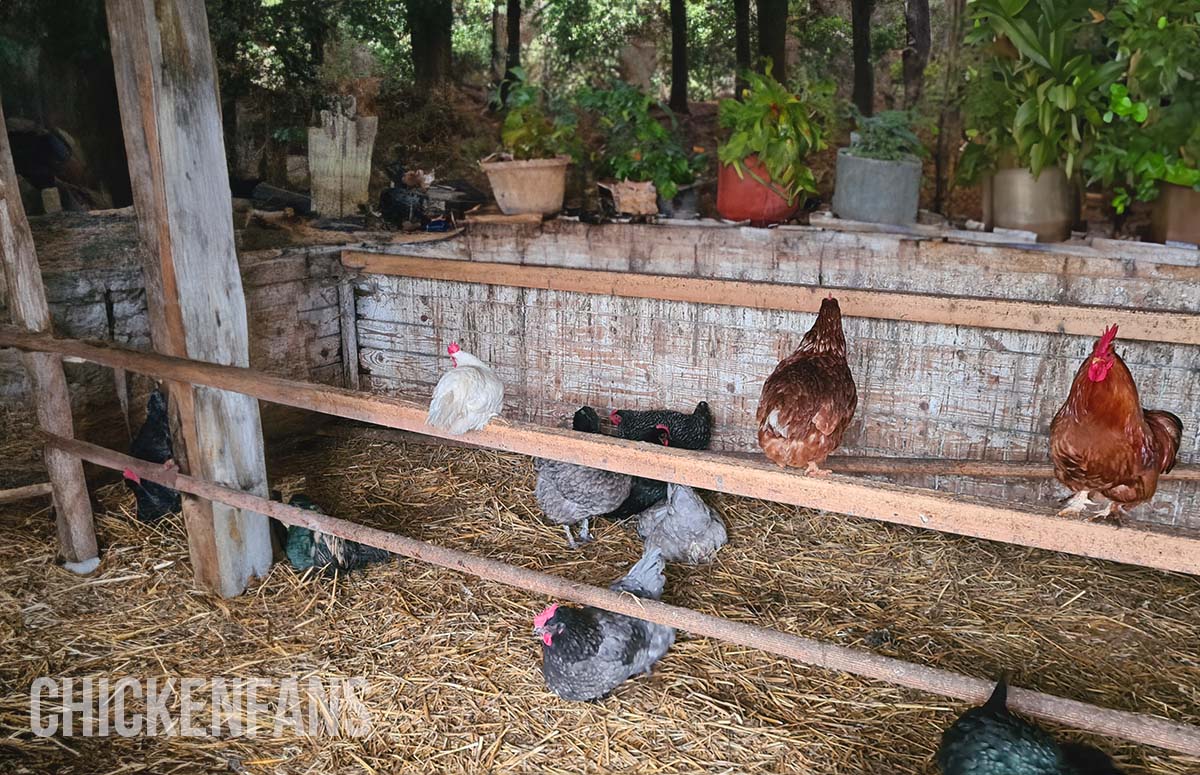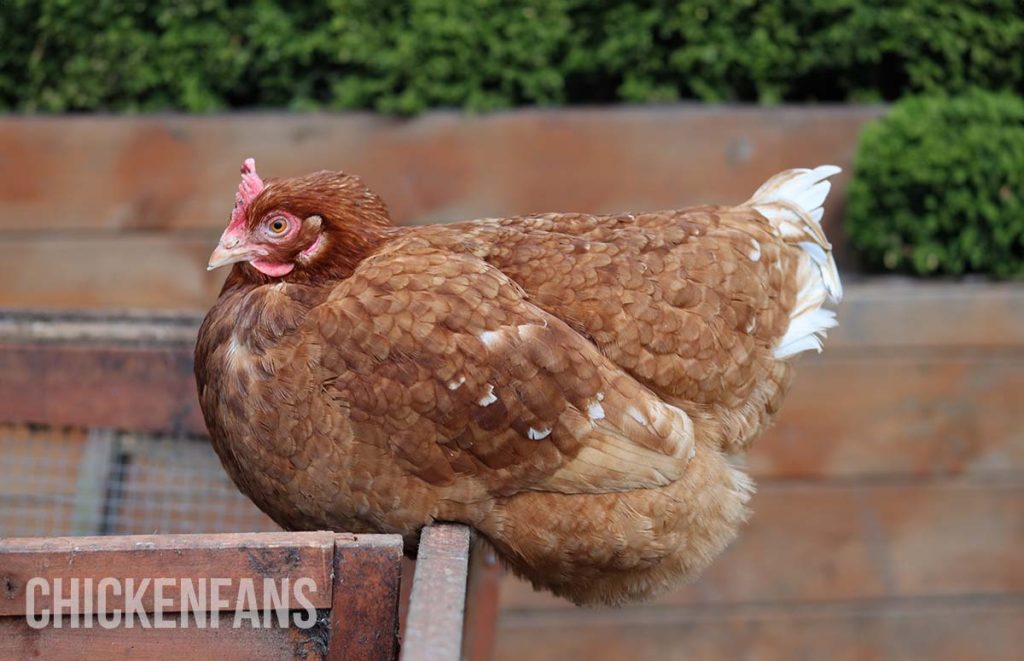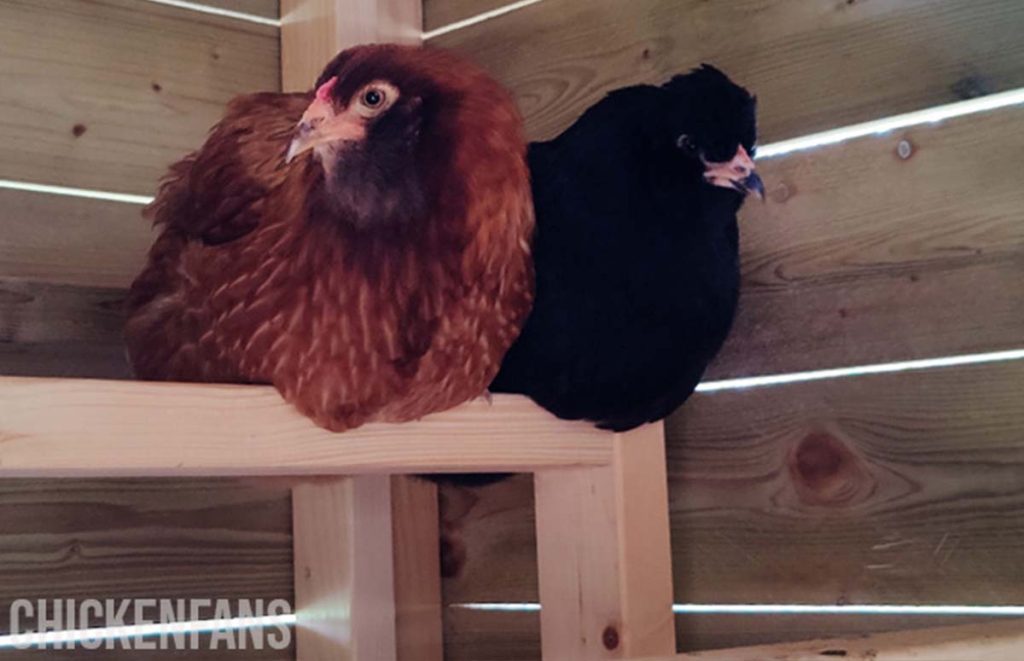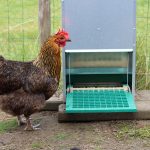Can Chickens Sleep Outside? (Dangers And Benefits)

Chickens are naturally roosting birds and sleep outside in the wild. Even with a comfortable coop nearby, they will often choose to sleep outside. There are both dangers and benefits to allowing chickens to sleep outside
Let’s address the most important question first.
Can Chickens Sleep Outside?
Yes, chickens can sleep outside. However, there are dangers to consider, such as predators, cold weather, and diseases. If you live in an area with harsh winters or a high risk of predators, it’s best to keep your chickens inside at night. Providing a secure coop is essential to ensure their safety and well-being.

Potential Dangers Of Chickens Sleeping Outside
- Predators: Chickens are prey animals and are vulnerable to predators like foxes, coyotes, hawks, and racoons. If chickens sleep outside, you’ll have to protect them from predators by installing a predator-proof fence around their run.
- Weather: Chickens can tolerate a wide range of temperatures but are susceptible to very cold weather, especially if they are not adequately protected. If you live in an area with harsh winters, you will need to let them sleep inside an insulated coop.
- Disease: Chickens can be susceptible to various diseases, and they can spread diseases to each other. If chickens sleep outside, they are more likely to come into contact with other animals, which can increase their risk of contracting a disease.
Benefits of Chickens Sleeping Outside
- Natural behavior: Chickens are naturally roosting birds, and they will often sleep more soundly if they are allowed to sleep outside. Wild chickens always roost in trees.
- Fresh air and sunshine: Sleeping outside allows chickens to get fresh air and sunshine, which are important for their health.
- Freedom: Chickens who sleep outside often have more freedom to move around and explore. This helps to keep them entertained and mentally stimulated.
Tips for Keeping Your Chickens Safe at Night
If you decide to let your chickens sleep outside the coop at night, there are a few thing you must do to keep them safe.
- Install a predator-proof fence: A predator-proof fence will help to keep out foxes, coyotes, and other predators. The fence should be at least 6 feet tall and have a tight mesh that smaller predators cannot fit through.
- Cover the run: Cover the run to protect your chickens from predators that can climb or fly over the fence. Use hardware cloth or another strong material.
- Keep your chickens inside at night during extreme cold: If you live in an area with cold winters, you must keep your chickens inside during winter. Insulate your coop to keep them warm at night.
- Provide a clean and well-ventilated coop: If you allow your chickens to roost in a clean coop that’s well-ventilated and has plenty of roosting options, your chickens will prefer the safety of the coop rather than sleeping outside.
- Check on your chickens regularly: Even if you have taken all these steps to keep your chickens safe, it is important to check on them regularly to make sure they are doing okay.

Summary
While chickens have a natural inclination to roost in trees, allowing them to sleep outside comes with both dangers and benefits. Predators, exposure to the elements, and increased risk of disease are potential hazards.
On the positive side, outdoor sleeping fulfills their natural instinct and provides environmental stimulation. It is important to prioritize the safety and comfort of chickens by providing a secure coop with appropriate roosting options, ventilation, insulation, and regular cleaning.






















